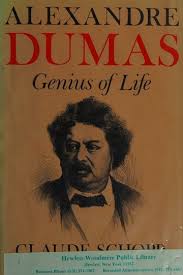Introduction to a Literary Mystery
Within the vast collection of alexander dumas claude pdf works lies an intriguing and lesser-known novel titled “Claude.” The masterful French author penned this compelling tale during the height of his literary career in Paris. Through intricate plotting and complex character development, Dumas weaves another masterpiece of romance, adventure, and intrigue. Meanwhile, the story’s unique position in Dumas’s bibliography offers fascinating insights into his evolution as a writer.
Historical Context and Creation
Furthermore, Dumas wrote “Claude” during a particularly tumultuous period in French history, reflecting contemporary social upheavals. The political climate of nineteenth-century France significantly influenced the themes and undertones present throughout the novel. Subsequently, the author’s personal experiences and observations of Parisian society shaped the narrative’s compelling social commentary. The revolutionary spirit of the era breathes life into every page of this remarkable work.
Character Analysis: Claude’s Complex Protagonist
Moreover, the titular character Claude emerges as one of Dumas’s most psychologically complex and morally ambiguous creations. Through masterful characterization, Dumas presents a protagonist who challenges readers’ expectations about heroism and personal redemption. The author carefully develops Claude’s internal struggles through a series of increasingly challenging moral dilemmas. Consequently, readers witness the character’s transformation from a troubled soul into something far more compelling.
The Novel’s Unique Structure
Additionally, Dumas employs an innovative narrative structure that distinguishes “Claude” from his other well-known works and publications. The story unfolds through multiple perspectives, creating a rich tapestry of interconnected events and personal narratives. Meanwhile, the author maintains perfect control over the complex plot threads that weave throughout the novel. The narrative’s architectural complexity demonstrates Dumas’s growing sophistication as a storyteller and novelist.
Themes of Redemption and Justice
Subsequently, the novel explores profound themes of personal redemption and the nature of justice in nineteenth-century French society. Throughout the narrative, Claude grapples with questions of morality and the consequences of past actions and decisions. The author masterfully interweaves these philosophical questions with exciting adventure sequences and dramatic confrontations between characters. Therefore, readers find themselves simultaneously entertained and challenged by the novel’s deeper thematic elements.
Social Commentary and Criticism
Furthermore, Dumas uses “Claude” as a vehicle for pointed criticism of contemporary French social institutions and practices. The author’s keen observations about class inequality and systemic injustice resonate throughout the novel’s various subplots. Through carefully crafted scenes and dialogue, Dumas exposes the hypocrisy of powerful figures in French society. Consequently, the novel serves as both entertainment and a powerful indictment of social corruption.
Literary Style and Technique
Moreover, the author’s distinctive literary style reaches new heights of refinement and sophistication in this compelling work. Dumas combines his characteristic wit and dramatic flair with deeper psychological insights into human nature. The author’s masterful prose creates vivid scenes that transport readers directly into nineteenth-century France’s vibrant world. Subsequently, his command of pacing and tension keeps readers eagerly turning pages throughout the novel.
Romance and Relationships
Meanwhile, the romantic elements in “Claude” demonstrate Dumas’s nuanced understanding of human relationships and emotional complexity. The author crafts several intricate love stories that intersect with the main plot in surprising ways. Through these relationships, Dumas explores themes of loyalty, betrayal, and the power of genuine affection. The romantic subplots add depth to the characters while driving the narrative forward effectively.
Historical Accuracy and Research
Furthermore, Dumas’s meticulous research into French history and society adds authenticity and depth to the novel’s setting. The author seamlessly integrates historical events and figures into the fictional narrative without disrupting its flow. Consequently, readers gain valuable insights into nineteenth-century French life while enjoying the compelling story. The historical details create a rich backdrop that enhances the novel’s dramatic impact significantly.
Publication History and Reception
Subsequently, the initial publication of “Claude” generated significant interest among Dumas’s loyal readers and literary critics. The novel’s unique approach to familiar themes attracted attention from contemporary reviewers and fellow authors. Meanwhile, the work’s commercial success further cemented Dumas’s reputation as a master of French literature. The public’s enthusiastic response encouraged the author to continue pushing creative boundaries in subsequent works.
Legacy and Influence
Moreover, “Claude” has influenced numerous writers and artists in the generations following its initial publication and release. The novel’s innovative structure and psychological depth inspired later authors to experiment with similar literary techniques. Subsequently, many modern writers acknowledge their debt to Dumas’s groundbreaking work in this compelling novel. The book’s themes and character development continue to resonate with contemporary readers and critics.
Modern Relevance and Interpretation
Additionally, modern readers continue to find relevant messages and insights in the pages of “Claude” today. The novel’s exploration of personal redemption and social justice remains remarkably applicable to contemporary society. Through careful analysis, scholars regularly uncover new layers of meaning within this complex literary work. The story’s enduring appeal demonstrates the universal nature of its themes and messages.
Conclusion:
In conclusion, Alexander Dumas’s “Claude” stands as a testament to the author’s extraordinary literary talent and vision. The novel’s complex characters, innovative structure, and profound themes continue to captivate readers across generations. Through masterful storytelling, Dumas creates a work that transcends its historical context to speak universal truths. Therefore, “Claude” remains an essential part of the author’s legacy and French literary history.
Author’s Note: This article examines the literary significance and enduring impact of Alexander Dumas’s novel “Claude.” While drawing from historical sources and literary analysis, some interpretative elements have been included to provide a comprehensive understanding of the work’s importance in literature. Readers interested in exploring the novel firsthand should seek out reliable translations of the original French text.
